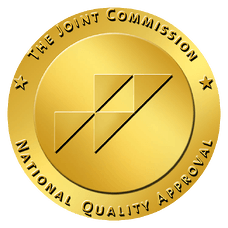What helps with an alcohol addiction?
Empowering Strategies to Conquer Alcohol Cravings and Fuel Your Recovery Journey

Navigating your recovery journey reveals that conquering alcohol cravings is paramount for long-term success. While curbing these cravings can be challenging, implementing a few strategies can significantly aid you in suppressing them during your recovery process. Employ these tips to sidestep triggers, bolster your resilience, and triumph over alcohol consumption urges.
Nourish with Craving-Calming Foods
Embrace the power of food as a means to bolster your body while resisting the allure of alcohol. Consider your favorite foods and their effects on your overall well-being. Certain foods harbor natural properties that assist your mind and body in detaching from the constant pull of alcohol cravings. By having these foods readily available, you can preempt cravings before they lead to detrimental decisions.
Harness the Nutrients in Fruits and Veggies
Prioritize a diet rich in fruits and vegetables, or introduce more if needed. These nutritional powerhouses stabilize blood sugar levels, effectively reducing alcohol cravings. Furthermore, they fortify your immune system and shield your liver, offering protection against the deficiencies often resulting from excessive alcohol consumption.
Lean on Complex Carbohydrates
As your body adjusts away from alcohol, cravings may emerge as your brain searches for alternative sources of energy. Rather than yielding to unhealthy demands, opt for fiber-rich complex carbohydrates, including whole grains, bread, and fresh fruits. These choices will leave you feeling satiated and curb cravings effectively.
Elevate Dopamine Levels Through Food
Prolonged alcohol consumption diminishes dopamine levels, leading to intensified cravings and an escalating need for alcohol. Combat these cravings by consuming foods like bananas, sunflower seeds, or caffeine-rich options that naturally reduce the urge for alcohol.
Establish Purposeful Goals
Setting goals is a fundamental aspect of any endeavor. When targeting a reduction in alcohol cravings, goal-setting becomes a pivotal initial step. This practice provides clarity on consumption limits, preferred choices throughout the day, and various considerations. To tailor goals to your specific stage of rehab, consult a healthcare professional for personalized guidance.
Solidify Goals Through Writing
Putting your goals in writing enhances their impact and memorability. Transform vague intentions into tangible reminders that persist throughout your day. Compile a list of motives for abstaining from alcohol, whether to nurture family relationships, excel at work or school, or achieve personal growth.
Keep Alcohol Out of Reach
The adage "out of sight, out of mind" aptly applies to alcohol cravings. While cravings might arise, their satisfaction is solely possible if alcohol is accessible. Prevent these urges by eliminating alcohol from your living space. This deliberate choice grants you the opportunity to explore alternative coping mechanisms and engage your mind constructively.
Engage in Diverse Activities
Diverting your focus is an effective strategy to mitigate cravings. Redirect your attention toward positive diversions, such as adopting a new hobby or taking a leisurely walk. Consider these engaging activities instead of succumbing to alcohol-seeking behavior:
- Immerse yourself in invigorating music.
- Embark on a refreshing stroll or jog in a local park.
- Find enjoyment in a lighthearted show or video.
- Tackle your weekly chores.
- Rekindle an old passion or explore a novel hobby.
- Indulge in a quick snack or soothing cup of tea.
- Immerse yourself in a captivating book.
By integrating these practices, you can proactively tackle alcohol cravings, empower your recovery journey, and embrace healthier alternatives.
Ready to take charge of your recovery journey and overcome alcohol cravings? Start implementing these effective strategies today and pave the way to a healthier, alcohol-free life. Remember, every small step you take brings you closer to your goal of lasting sobriety. You've got this! CALL US NOW AT 765-780-7689


